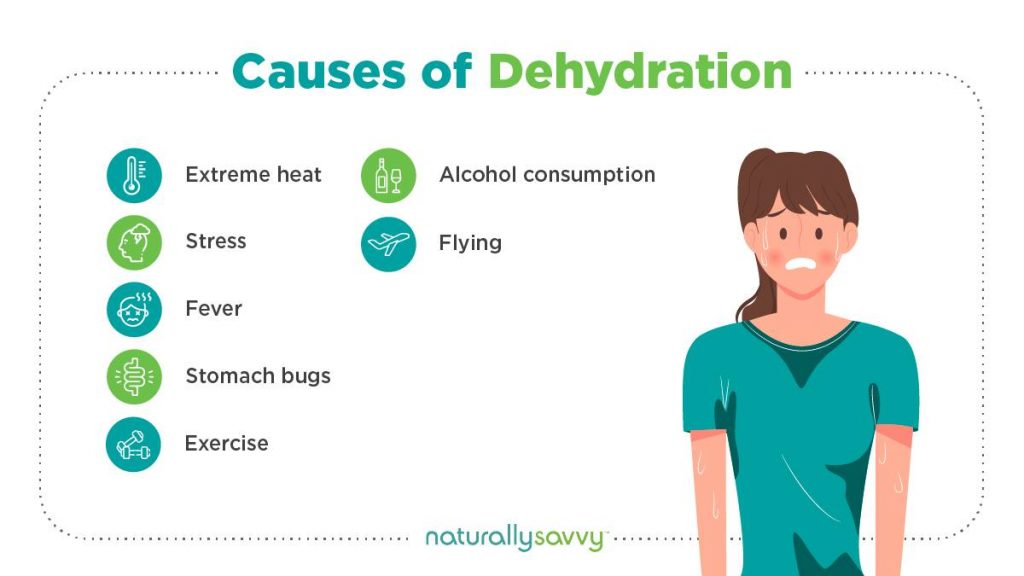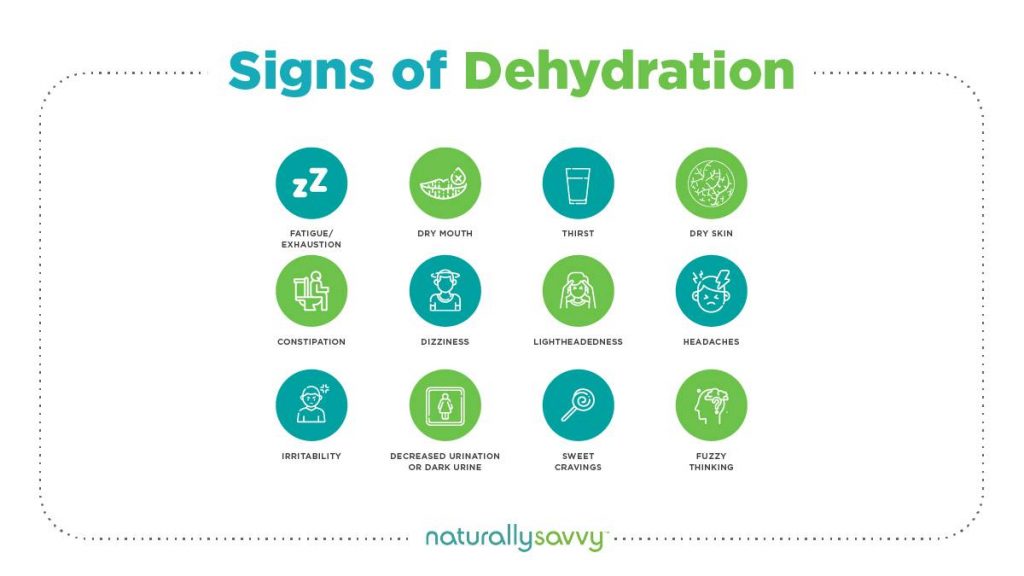
Lots of people believe they know when they are dehydrated, but the truth is, dehydration can be a sneaky thing. In fact, it can be downright unhealthy and dangerous as well. Here’s what you need to know about dehydration and how it affects your health.
What is dehydration?
Dehydration is when your body loses more fluids than you have replaced. You may have lost these fluids from excessive sweating (due to exercise, hot weather, or environment such as a sauna), diarrhea, or vomiting. When you lose fluids you are losing more than just water; critical electrolytes such as calcium, sodium, magnesium, and potassium also are lost and can eventually result in serious health problems.
Read about what’s all the fuss about hydration?
What are the symptoms of dehydration?
Symptoms of mild dehydration can include thirst, moodiness, dry mouth, or highly concentrated, dark urine. Dehydration that is more advanced can cause headache, heat exhaustion, heatstroke, heat (muscle) cramps, confusion, an inability to think quickly or clearly, tiredness, and seizures.
Individuals who engage in certain activities or professions can be at special risk for dehydration. Construction workers, farmers, road crews, and others who work in the sun for prolonged periods of time, as well as race car drivers and endurance athletes, for example, are at great risk for dehydration. In fact, professional race car drivers can lose up to 10 pounds of water during a two- to three-hour race.
You need to be only 2 percent dehydrated before your cognitive abilities become compromised because of dehydration. Imagine how dangerous that could be to anyone who is driving or operating heavy equipment?
How does dehydration affect your body?
First of all, infants, young children, the elderly, and anyone who has a chronic illness tend to be at greater risk of dehydration than others. However, anyone can become dehydrated, so be aware of the symptoms, risks, and consequences of dehydration.
Read about electrolytes, what do you need to know
- Heatstroke: If you begin to experience heat cramps and heat exhaustion, these symptoms can result in heatstroke. That occurs when your body cannot cool down properly. Symptoms can include seizures, lethargy, and confusion.
- Kidney issues: Your body requires lots of water to help flush waste and toxins from the body. Mild dehydration may result in tiredness, but more prolonged dehydration can lead to permanent kidney damage when kidney stones and toxic buildup obstruct the kidneys. Urinary tract infections also are possible.
- Seizures: Dehydration is typically accompanied by a deficiency of sodium and potassium. These electrolytes help with nerve and muscle function, so when they are in short supply, seizures, involuntary muscle contraction, and unconsciousness are possible.
- Low blood volume: If you were to lose more than 20 percent of your body’s fluid or blood supply, you would be in hypovolemic shock. This is a potentially lethal condition and should be addressed immediately by emergency room staff or other emergency professionals
- Diminished mental capacity: Just a 2 percent loss in fluids can result in dehydration that impairs cognitive function, such as attention, thinking skills, and coordination. Therefore, even mild dehydration can have a significant impact on your daily life.
- Poor digestion: Staying well hydrated is necessary for proper digestion. Insufficient fluid intake can result in constipation.
- Tiredness: When you don’t get enough fluids, blood flow to the brain slows, which results in lower blood pressure and a higher heart rate. This can make you feel tired.
- Altered detox: The body has a natural metabolic detox process that helps neutralize and eliminate harmful toxins. To be effective, this process requires a sufficient amount of water/fluids. Dehydration places this process at risk.
- Skin and appearance: When you don’t get enough fluids, your appearance can suffer. Dehydration contributes to dull, dry, wrinkled skin, brittle nails, and dry hair.
- Dizziness: A reduction in blood flow to the brain can make you feel dizzy and lightheaded. This can also make it more dangerous to drive or engage in activities that require coordination and concentration, such as driving.
- Sugar cravings: If you don’t consume enough liquids and are physically active, your body will need to draw from carbs at a faster rate. This can result in you feeling hungry and craving sugar when you are really just dehydrated.
Bottom line
Dehydration is about so much more than just feeling thirsty. Insufficient fluid intake can result in uncomfortable and even life-threatening conditions. Eight glasses of eight-ounce servings of water daily is the general recommendation, along with foods high in water content, such as most fruits and vegetables. However, you may need more fluids if you are ill, exercising a lot, taking certain medications such as diuretics, or spend a lot of time in hot environments.
[Editor's Note: SOS Hydration is a physician-developed rehydration product that has the perfect balance of sugar to sodium to get water into your cells where you need it most. It comes in individual powder packets, tubs of powder, and ready-to-drink.]
Learn more about SOS Hydration from the Founder James Mayo:









